- Home
- John Jakes
North and South Trilogy Page 38
North and South Trilogy Read online
Page 38
She uttered a little gasp of surprise. “You told me your name, but I never connected it with the Mains of Mont Royal.”
“Because I said I live in Charleston, which I do. I left home myself, year before last. My father and I don’t agree on any number of things. One is our peculiar institution.”
“Do you mean to say you oppose it?”
“I do. On practical as well as moral grounds.”
“Then we think alike.”
“I’m glad, Miss Stafford.” He felt himself blushing.
Her brown eyes lighted with a look he had thus far only dreamed of seeing there. Suddenly every memory of the fiery furnaces of Lehigh Station was gone, and the future looked altogether different.
“Please,” she said. “Won’t you call me Judith?”
Cooper could speak forcefully when he had to, but it always required effort. She had the same shy disposition. Perhaps that was the reason the bond between them was so immediate and so strong.
On the voyage to Charleston, he told her a great deal about himself. She reciprocated. Her father believed in the importance of education and had saved all his life to make hers possible. She had gone north to complete the last two years of her schooling at Miss Deardorf’s Female Academy in Concord, Massachusetts, and after graduation had been invited to remain as a teacher of music and literature.
Strictly speaking, then, she wasn’t from Boston, but she went into the city as often as possible. She belonged to the Federal Street Church and shared the moderate abolitionist views of its pastor, the Reverend William Ellery Channing.
“A Unitarian, eh?” Cooper grinned. “We’re taught to believe most of them have horns.”
“Some are much more radical than others. Dr. Emerson, for example. He had the pulpit at Boston’s Second Church until his conscience would no longer permit him to administer the Lord’s Supper. He’s a bit too esoteric for my tastes, although he’s unquestionably a man of great moral conviction. He lives in Concord, you know. I see him several times a week. But of course I wouldn’t dare speak to him.”
She loved the little village where Yankee farmers had first fired at King George’s men. Several famous people resided there. Besides Emerson, the writer Hawthorne was perhaps the best known. She also mentioned a radical named Thoreau, a sort of woodland anchorite of whom Cooper had never heard.
They talked of many things: Boston fish chowder and the Transcendental movement. The ubiquitous feminine parasol—Judith had hers, small and fringed—and New England poets. Longfellow. Whittier, the laureate of the abolitionist movement. Young Lowell, just beginning to achieve national prominence.
“I know Lowell’s work,” Cooper said. “During the Mexican War I read his doggerel purporting to expose the motive for the campaign in ‘Californy.’” He quoted: “‘Chaps that make black slaves o’ niggers want to make white slaves o’ you.’”
For the first time, Judith’s glance was disapproving. “You mean to say you don’t believe the acquisition of slave territory was the reason for the war?”
“It was one reason, but not the only one. Things are seldom that clear-cut. This country’s drifting into serious trouble because of the clamor for simple and immediate solutions to complex problems that will take years to solve—even with total effort on both sides. Gradual, compensated emancipation could free the Negro without wrecking the South’s economy. Neither side will hear of it. It’s too slow. Too tainted with compromise. Everyone wants quick, pure, destructive answers.”
“It’s rather hard for me to tell which side you’re on.”
“There’s no handy label for me, I’m afraid. I’m opposed to the slave system, but I’ll never condone violence to achieve its overthrow. I believe that trying to preserve the institution by setting up an independent South is ludicrous. We must get along with the Yankees. We don’t dare risk a serious quarrel with them—they outnumber us, and we depend on their factories for survival. If we went our own way, that would be the end.”
“From what I read, many Southern politicians think otherwise.”
“They don’t remember the lessons of their Bible,” he replied with a faint, bitter smile. “‘The pride of thine heart hath deceived thee.’ Jeremiah forty-nine.”
“Well, I’m not such a—a gradualist as you,” she said after a moment’s consideration. “Slavery’s an evil that must be rooted out by whatever means are necessary. Reverend Channing tries to appeal to the Christianity of the slave owners, but so far that hasn’t worked.”
“Nor will it. Down here, money speaks a lot louder than God.”
“Doesn’t it everywhere? Still, how can we claim to practice liberty in this country if part of the population is in bondage?”
“My father says slavery is a positive good.”
“Nothing personal against your father—but despots always proclaim their own benevolence.”
He smiled. “I see you’ve read your Reverend Weld.”
“And Garrison, and Douglas. I believe what they all say. The price for emancipation must be paid, no matter how high.”
“I can’t agree. But perhaps there’ll come a time when I do. I find myself more and more out of step with the majority. One of these days I’ll probably be run out of Charleston. Before that happens, I’d like to show you my house.”
“What? Without a chaperone?” she teased. Her eyes met his. “I’d very much like to see your house, Cooper.”
Emboldened by her earnest gaze, he kissed her at the door of her stateroom a few minutes later. She responded with ardor, immediately apologized for her lack of shame, then in a whisper asked him to kiss her again.
It was a magic journey, and by the end they were in love and freely admitting it. As the steamer approached Charleston harbor, they finished a discussion of how soon she might be able to relinquish her duties in Concord, and whether she could be happy back in South Carolina.
The harbor pilot came aboard just at sunset. Cooper and Judith stood at the rail, watching the spires of the city flame in the last light. Never had he met anyone he trusted so completely. Someone to whom he could speak without fear of misunderstanding or scorn.
“My people have always been landsmen, but I’ve fallen in love with the sea. Maybe because the land is inseparably tied to slavery and its miseries.” He faced toward the stern and the Atlantic beyond. “To me that ocean represents a real chance to be free of the old ways. It represents the speed of steam-driven ships. A shrinking world. The future—”
He hesitated, pink for a moment. “Do you find that laughable?”
She shook her head. “Admirable. Realistic, too. But outmoded ideas die hard. That’s why we’re experiencing such turmoil these days. An outmoded idea’s dying, but the people of this state won’t accept the fact or the inevitability of it. If they did, it would be so much easier.”
Cooper sighed. “Yes, but the resistance is understandable. A man gives up a lot when he gives up his nigras. He surrenders something I’ve never heard a single slave owner mention, yet it’s there, it’s fundamental, and it’s the one factor that causes and promotes the evil in the system.” The harbor wind tossed his hair as he gazed seaward. “Total power. Slavery gives one man total power over another. No human being should have that kind of power. No king, no president—and certainly not my father. The power’s destructive. I finally saw that clearly. My father was always a good and humane master, but one day he got angry and ordered one of our slaves cat-hauled. Do you know what that is?”
She shivered. “Yes. I’ve read of it.”
“Well, my father had it done. And because he owned the man—owned him without question—there was nothing to prevent it. Nothing to prevent one human being from behaving like a beast and another from being treated like one. That’s why I doubt Reverend Channing’s approach will succeed. Total power has a dark appeal to the wicked side in all of us.”
Seeing his stark expression, Judith grew bold enough to do something she’d only imagined herself doing here
tofore—taking a man’s hand in hers, in public.
Gently she closed her fingers on his. She was delighted by the audacious things she’d done on this voyage. When she began the trip in Boston, she’d had no thought of doing any of them. Surely this delicious new freedom was another sign that she had finally found a man she could love all her life.
Cooper, too, had found a partner. A decent, bright woman who was, to him, surpassingly beautiful. A woman who shared his own quirky, iconoclastic turn of mind, and many of his beliefs, and a few of his doubts. With her, if she’d have him, he could weather the stormy times that were surely coming. In the house on Tradd Street, this very night, he would propose.
The decision returned a look of calm to his face. Holding hands and heedless of the stares of some scandalized passengers, Cooper and Judith stood gazing into each other’s eyes as Fort Sumter loomed off the bow and slowly fell behind.
23
TENSION AND QUARRELING PLAGUED the Hazards that spring. The servants bet small sums on who would be speaking to whom by the time the family left for Newport. Some wagered they wouldn’t go at all.
George discovered Stanley had made another donation to Cameron, this time in the amount of two thousand dollars. “You promised to stop that sort of thing!” He punctuated the accusation by pounding the desk so hard a window rattled. Stanley edged to the other side of the office before answering. George was small, but Stanley lived in fear of him. He lived in greater fear of Isabel, however.
“I never meant I’d stop permanently. If you thought that, you misunderstood. Besides, Simon urgently needed—”
“Oh, it’s Simon now. Pals! What post are you buying? What’s the price?” Stanley reddened. George prowled back and forth like a wild animal. “Our costs rise every day, and you piss our money away on political hacks and private rail cars.”
On his own, Stanley had contracted for an eight-wheel passenger car, complete with sitting room, sleeping compartments, and a galley. The unusual car, one of only a handful in the nation, was being rushed to completion in Delaware. Stanley had been pushed into the purchase by his wife, who had repeatedly said she would not ride the public cars to Rhode Island.
“Surely we can discuss this without resorting to vulgarity, George.”
“Discuss, hell. It’s too late to do anything about the car, but I won’t have you giving Cameron another penny.”
“While I control the bank account, I’ll do as I please. Speak to Mother if you don’t like it.”
He didn’t have the nerve to look at his younger brother as he played that trump. George angrily subsided, as Stanley expected he would. George might threaten to go to Maude, but Stanley had figured out that his pride would never permit him to do it. With a smug smile, Stanley strolled out. The door banged shut, a defiant coda to the conversation.
Swearing, George sat down. He tried to calm himself but failed. Stanley had him, and they both knew it. He refused to run to Maude, yet the situation as it stood was intolerable. He didn’t know what to do. He picked up an inkwell and hurled it against the wall.
“Childish,” he grumbled a minute later. But it had made him feel a lot better, even though his problem remained unsolved and the flying ink had ruined his shirt.
Stanley described the argument to Isabel. Naturally George was the villain, Stanley the hero.
She took revenge with a new campaign against her in-laws. With a false smile of concern, she began “wondering”—aloud—about the nature of the religious upbringing little William and Patricia would receive. She dredged up the usual scare tales about sinister Roman priests who exerted an evil influence on parishioners and, by extension, their children. But her special target was George. For several weeks his apparent lack of any faith became a popular topic among the better-class women of Lehigh Station.
No, George didn’t worship as a Catholic, Isabel said to them, but neither did he set foot in his own church, the Methodist. Weren’t his poor children in danger of growing up godless? People who previously hadn’t worried about that question, or George’s character, found themselves talking of little else.
Some of the gossip reached Constance, then George. It saddened her and infuriated him. It was no comfort to receive a letter from Orry and learn that there was discord in the Main family, too. Cooper had announced his forthcoming marriage to a Unitarian girl with abolitionist leanings. Tillet could hardly contain his displeasure. Orry hoped the Newport trip would ease the tensions, at least for a little while.
Virgilia left for ten days in Philadelphia, where she was to address another rally. Maude had long ago stopped pleading with her about the need for a chaperone. Virgilia did as she pleased.
Five days later, as packing for the Newport trip commenced, one of Isabel’s friends called on her. The woman, Grace Truitt, had just returned from Philadelphia. One evening she and her husband had gone to the Chestnut Street Theater to see a revival of The People’s Lawyer, a perennially popular play featuring one of those Yankee rustics who outwitted supposedly smarter people; the shrewd rustic had been a standard character in American comedy for years.
“Your sister-in-law occupied a box with a handsome escort named Toby Johnson,” the visitor said.
“I don’t know the gentleman.”
“It would be surprising if you did, but everyone in Philadelphia has heard or read about him. Virgilia and Mr. Johnson appeared together at the abolitionist rally.” Grace Truitt paused, relishing the next. “On that occasion Mr. Johnson recounted his experiences in North Carolina before his escape.”
“Escape? Good heavens, you don’t mean he’s—African?”
“Brown as a nut,” said the other, nodding. “They flaunted themselves at the theater. Kept touching each other and exchanging glances which—well—” The woman dabbed her glistening upper lip. “One could only term them amorous. I hate to bring you such tragic news, but I felt you should know.”
Isabel looked sick. “Was there much reaction to their presence at the theater?”
“I should say there was. Several couples left in protest before the curtain rose. At the first interval someone flung a bag of trash into the box. A vulgar action, to be sure; still, Virgilia and her companion sat there bold as brass and ignored it.”
Isabel clutched the woman’s hand. “Please keep this to yourself, Grace. I’ll inform the family at the proper moment, when Virgilia gets home.”
“You can depend on my discretion.”
But it was an idle promise.
Maude sent a cart and driver down to the village to meet Virgilia’s boat. A block from the canal, two loungers saw her riding in the cart with her luggage. One of the men found a stone.
“Don’t bring your nigger lover to Lehigh Station!”
He flung the stone with more emotion than accuracy. Virgilia saw it sail harmlessly by. The cart driver gave his passenger a stunned look. She ignored it and glared at the loungers. By evening, when George and his family trooped to Stanley’s for supper, the incident had become the talk of both houses.
Before the first course was served, Maude said, “Virgilia, I heard about a nasty incident in the village today. What caused it?”
She shrugged. “My friendship with Toby Johnson, I suppose. I attended the theater with him in Philadelphia. Gossip travels fast. Perhaps some small-minded person from Lehigh Station actually saw me.”
It angered Isabel that her revelation had been spoiled. At least she could emphasize the enormity of Virgilia’s misdeed:
“In case someone is unaware, Johnson is a Negro.”
That wasn’t news to George; he and Constance had discussed the incident an hour ago. He chewed furiously on his cigar stub because Virgilia’s expression said she was relishing the family’s discomfort. He was no longer surprised by such behavior, but it still angered him.
Virgilia’s chin lifted defiantly. “Toby Johnson is a fine man, and I shall see him as often as I like.”
Billy looked titillated; everyone else was upset
. Stanley sputtered, unable to speak coherently. Maude studied her daughter with an air of grieved resignation. George spoke for the group.
“We have no quarrel with your cause, Virgilia. But you carry it too far. I don’t say that merely because the man’s black—”
Her look withered him. “Of course you do, George. Don’t be a hypocrite.”
“All right—perhaps his color is part of it. But I expect I could get over that, or reconcile myself to it, if it weren’t for your attitude. I don’t think you really care for this man.”
“How dare you presume to say what I really—?”
“Virgilia, shut up and let me finish. I think what you really want is to draw attention to yourself. Thumb your nose at the world because you believe—mistakenly—that it’s harmed you. In the process, you’re shaming your mother and dishonoring this family. Certain things just aren’t done by decent women, whether the man is black, white, or purple.”
Virgilia balled her napkin and tossed it away. “What a dreadful prig you’ve become.” Maude uttered a soft cry and averted her face.
“We’re not talking about me but about you and your behavior,” George retorted. “We won’t put up with it.”
She rose and fixed him with cold eyes. “You’ll have to, brother dear. I am an adult. Who I sleep with is my affair.”
Embarrassed, Constance turned toward Billy. George and Stanley stared at each other, for once united by shock and anger. Isabel drew gulping breaths. Virgilia swept out of the room.
Maude put her hand in front of her face to hide sudden tears.
Next day William broke out in a rash. George and Constance feared measles. Dr. Hopple said it wasn’t measles, but the boy nevertheless developed a fever. Constance stayed up all night to tend him. George stayed up worrying about her and about the mess caused by his sister. He was in a bad mood when the family left the next afternoon in two carriages; a third followed with a small mountain of luggage. At Philadelphia the Hazards would board the private rail car which would take them to a siding near the Newport ferry dock.

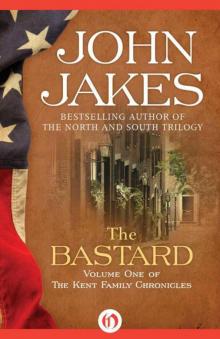 The Bastard
The Bastard The Furies
The Furies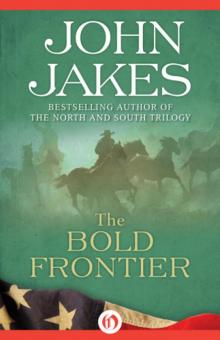 The Bold Frontier
The Bold Frontier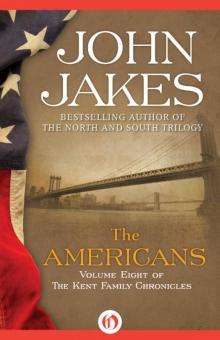 The Americans
The Americans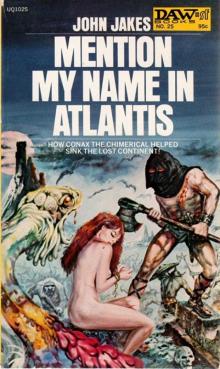 Mention My Name in Atlantis
Mention My Name in Atlantis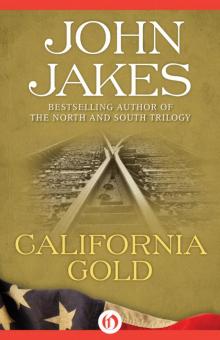 California Gold
California Gold North and South
North and South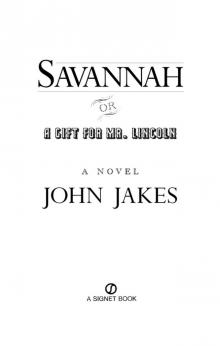 Savannah, or a Gift for Mr. Lincoln
Savannah, or a Gift for Mr. Lincoln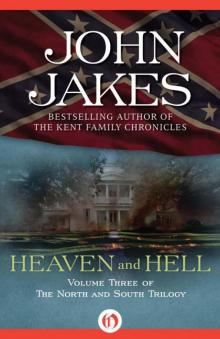 Heaven and Hell
Heaven and Hell Homeland
Homeland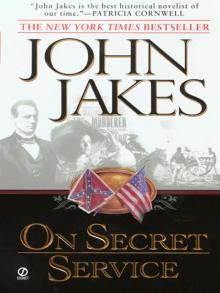 On Secret Service
On Secret Service The Lawless
The Lawless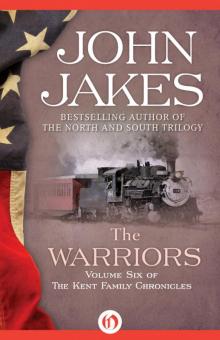 The Titans
The Titans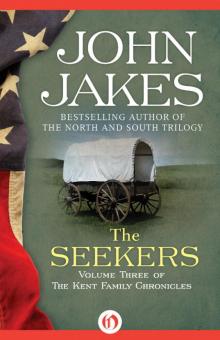 The Seekers
The Seekers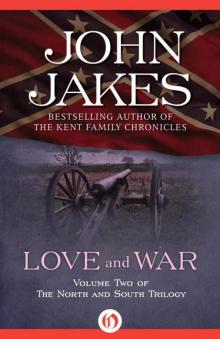 Love and War
Love and War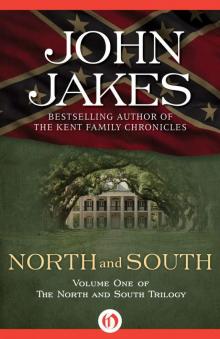 North and South: The North and South Trilogy (Book One)
North and South: The North and South Trilogy (Book One)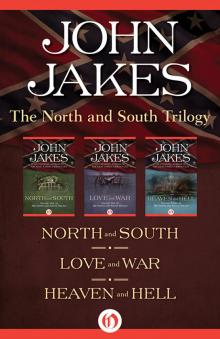 North and South Trilogy
North and South Trilogy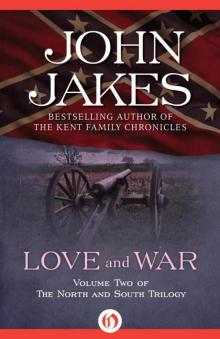 Love and War: The North and South Trilogy
Love and War: The North and South Trilogy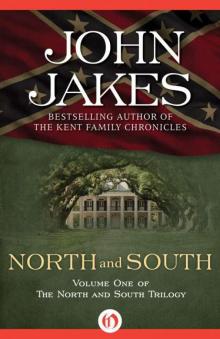 North and South: The North and South Trilogy
North and South: The North and South Trilogy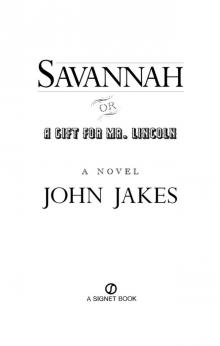 Savannah
Savannah Lawless
Lawless Conquest Of The Planet Of The Apes
Conquest Of The Planet Of The Apes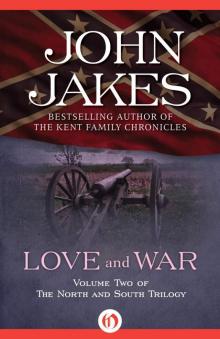 Love and War: The North and South Trilogy (Book Two)
Love and War: The North and South Trilogy (Book Two)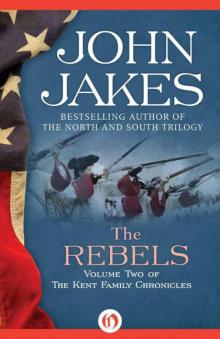 The Rebels: The Kent Family Chronicles
The Rebels: The Kent Family Chronicles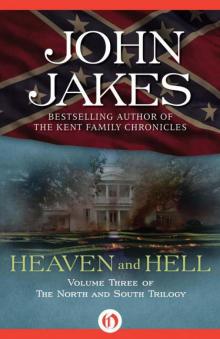 Heaven and Hell: The North and South Trilogy
Heaven and Hell: The North and South Trilogy Planet of the Apes Omnibus 2
Planet of the Apes Omnibus 2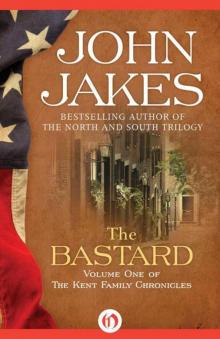 The Bastard: The Kent Family Chronicles
The Bastard: The Kent Family Chronicles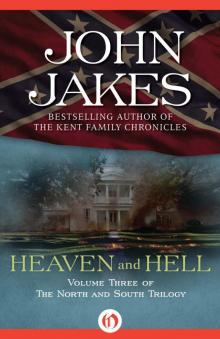 Heaven and Hell: The North and South Trilogy (Book Three)
Heaven and Hell: The North and South Trilogy (Book Three)